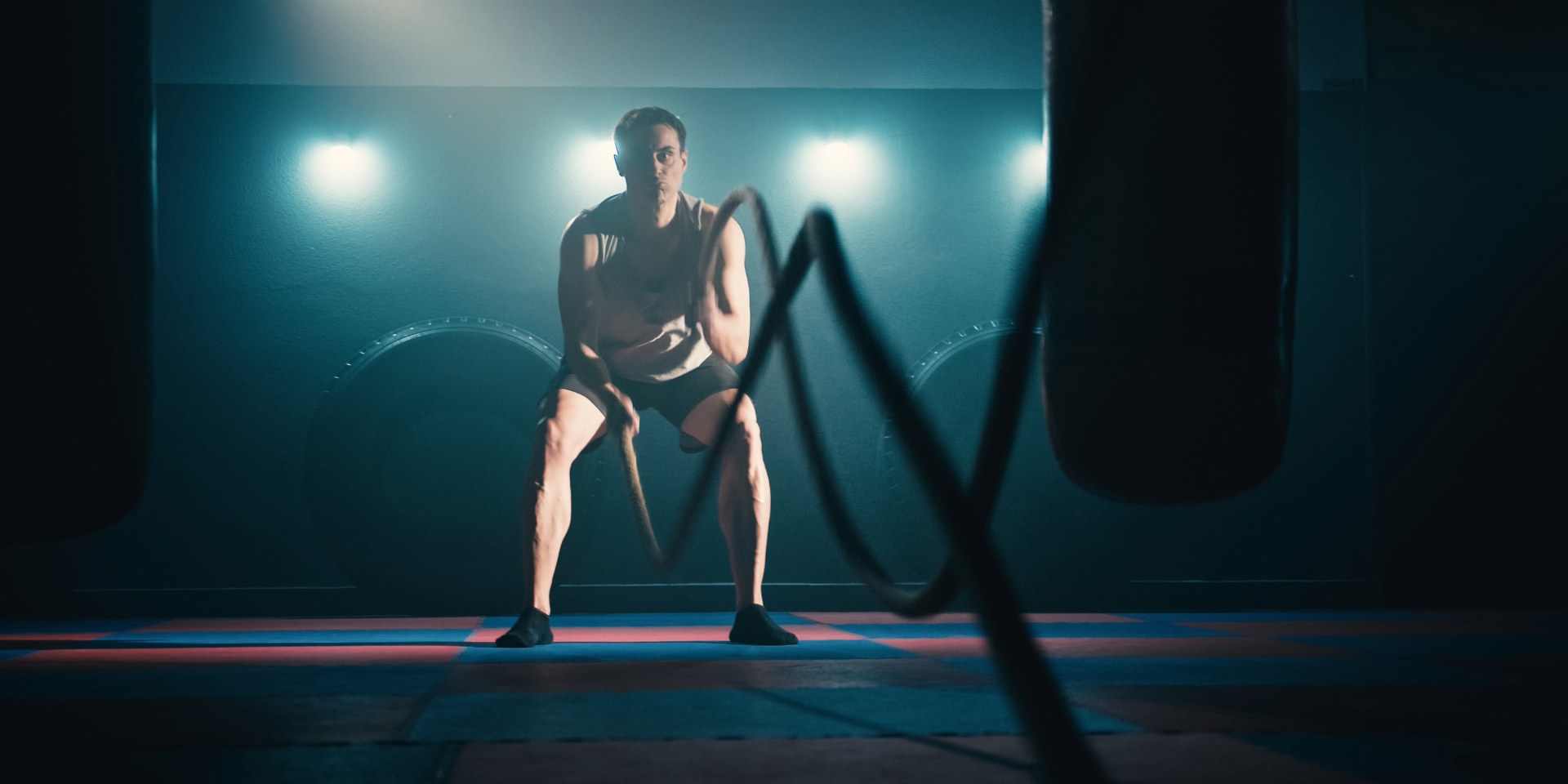I have a mentor friend at the gym who I catch up with every now and again between sets. He’s one of those massive dudes who everyone in the gym knows—his walk from the locker to the dumbbell rack consists of greeting and fist-bumping pretty much every guy on the way.
With eight years of gym wisdom behind him, he’s often emphasised to me how much obsessive behaviour is ultimately irrelevant. “You don’t have to be hard-out eating lean protein all the time. You can eat unhealthy food every now and again; I go to McDonalds sometimes on a weekend. It’s not going to stop you reaching your goals.” In gym rhetoric, eating food that doesn’t contribute to goals occurs on what’s called “cheat day.”
One time he approached me in between back-row sets, and started sharing pearls of wisdom. The conversation shifted and we were soon talking about steroids. He started mentioning names. “You know this person?” he asked, describing one of the larger guys that I’d seen around. “He’s using the juice.” He went on to list off a few more of the larger guys at the gym. “Some of them enter natural competitions, but they’re not natural,” he said, using the lingo that refers to bodybuilders going drug-free.
We live in a world of constant dissatisfaction. Overweight people feel pressured to become skinny, and skinny people feel pressured to bulk up. It’s often said that the standard is set by movies and magazines, but ultimately it’s what others think that drives people to doing some crazy and even illegal things. And this desire to want to reach that standard leads people to cut corners—sometimes with deadly results.
Cautionary tale
Aziz Shavershian was a legend to my mates throughout high school, especially when I was in Year 11 in 2012. Some of them had recently discovered the gym and were looking for bodybuilding role-models. Referred to as “Zyzz,” Shavershian epitomised the rags-to-riches story, working his way up from being a lanky kid to exhibiting a “cut” figure with popping muscles. His back-catalogue of “inspirational” expletive-laden YouTube videos may have been unintentionally hilarious, but a horde of internet followers were watching Zyzz’s bodybuilding and party-obsessed lifestyle content.
One small problem. Zyzz had actually died in 2011 from a cardiac arrest. While on a trip to Thailand, a haven for bodybuilders looking to easily get onto a steroid cycle, Aziz Shavershian suffered a heart attack while in a sauna. It turned out he’d had a congenital heart defect. He’d denied ever using anabolic steroids, though his brother, Said Shavershian, was arrested for possessing the drug in July 2011. A fellow bodybuilder and confessed steroid user Tim Ward recounted a conversation he’d had with Zyzz in the days leading up to his untimely death. He’d asked Zyzz, “What [steroids] are you taking in Bangkok?” “Everything,” was the answer. “That’s when I warned him, ‘slow down man,’” Ward told traveller.com.au.
Zyzz duxed high school and had almost completed his business and commerce degree at the University of Western Sydney when he died at age 22. A life with so much potential, apparently claimed by an obsession to look more muscular.
Buyer beware
Aziz Shavershian’s life and unfortunate death highlight a worrying trend among young males. According to the Heart Foundation, 42.4 per cent of males are overweight in Australia, and 1 in 3 New Zealand men are classified as obese. A lot of positive lifestyle goals, from losing weight to finding stress relief, lead to men ending up inside a gym. But we’ve also seen a shift to the other extreme, where young men, in particular, feel pressured to maintain a “shredded” physique.
Any bodybuilder, natural or not, will tell you that success is about more than just packing on muscle mass. Ingesting protein is necessary to repair and rebuild muscles, and is found in a lot of both plant and animal foods. But then there’s a whole host of other supplements that you can find at your local supermarket or chemist, including highly caffeinated pre-workout formulae and hydrates, such as creatine, that boost what your body naturally produces. These are all legal and readily available, though their overall health impact is hotly debated.
What isn’t legal are the various types of anabolic steroids that add hormones, such as testosterone, into your system. They’ll make you bigger—at a price. Severe acne, genital shrinkage, hair loss and bouts of aggression are all common side effects of anabolic steroids. Then there are the heart problems, which, it seems, contributed to Zyzz’s demise. And let’s not forget the ethical issues surrounding using an illicit substance to become bigger than your fellow gym buddies—especially in preparing for a competition. This begs the question—is it all really worth it?
Vulnerable
Body image is certainly not a gender-specific issue. Much has already been said in the media about the body-image pressure on young women. The plight of young men, however, is often neglected. They often have a skewed perception of masculinity pushed on them also, and are left with a desire to reach unreasonable aesthetic body standards. According to the National Eating Disorders Collaboration, 28 per cent of males aged 11–24 aren’t happy with their appearance. The Collaboration also noted this was resulting in “dangerous dietary practices,” including “weight control methods, excessive exercise, substance abuse and unnecessary surgery to alter appearance.” A study by the Journal of Science and Medicine in Sport found 3.2 per cent of high school boys are using steroids, and a Queensland Needle and Syringe Program survey found steroids accounted for 8 per cent of all illicit IV drug use in 2015.
The advent of bodybuilding is a fairly recent trend—just a few decades old—but the Bible has some timeless wisdom in regards to being healthy: “Do you not know that your bodies are temples of the Holy Spirit,” 1 Corinthians 6:19-20 asks. “You are not your own, you were bought at a price. Therefore honour God with your bodies.”
In a gym context, working out can be honouring God. Losing weight and gaining muscle helps boost your energy levels, improves posture and back health, and can generally boost confidence and positivity.
But the Bible also warns about obsessive behaviour and “idolatry”—the worship of idols. This is not only about golden statues, but also objects and behaviors that can lead to infatuation, and remove our attention from a relationship with our heavenly Father. Colossians 3:5 puts it bluntly: “Put to death, therefore, whatever belongs to your earthly nature: sexual immorality, impurity, lust, evil desires and greed, which is idolatry.”
Can taking it too far at the gym become an idol too? And what about the internal drive to go to the gym, the feeling like we could always be better than what we are? The Bible has a special message for the insecure, which reveals God’s true nature as a caring Father: “See what great love the Father has lavished on us, that we should be called children of God! And that is what we are!” (1 John 3:1). God wants us to love ourselves as much as He loves us. No amount of steroids or extreme gym practices will ever take away how God feels about us and how we look. His love is unconditional.
Daniel Kuberek is a former assistant editor for Signs of the Times magazine. He currently works in the Australian film industry. A version of this article first appeared on the Signs of the Times Australia/New Zealand website and is republished here with permission.














